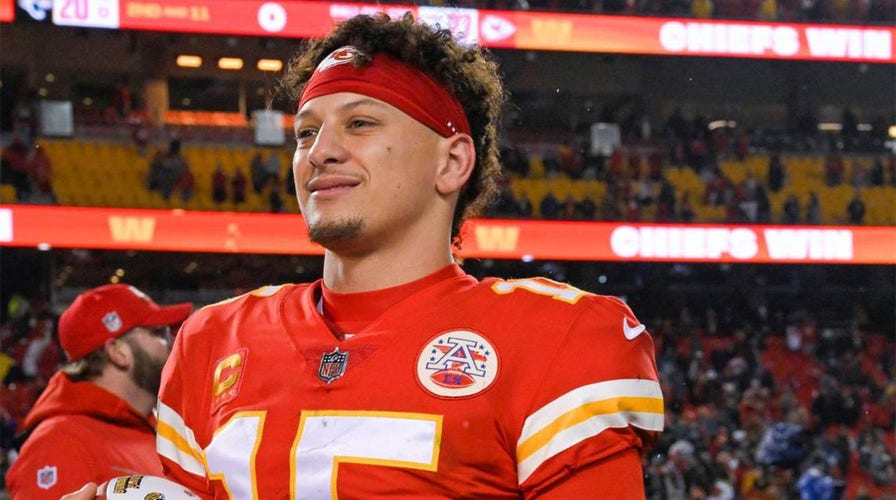The Browns’ deal for Deshaun Watson led some to believe Kansas City committed huge up-front money to Mahomes.
When the Kansas City Chiefs extended quarterback Patrick Mahomes’ rookie deal by 10 years in July of 2020 — a deal that was worth a total of $503 million — no one had ever seen a contract quite like it.
Two and a half years later, most people have finally wrapped their heads around one of the major features of the unusual deal: since most of Mahomes’ compensation is in the form of roster bonuses, it can be reclassified as signing bonuses. This gives the Chiefs an avenue to create salary-cap space whenever they need it — just as they did in 2021, when a stroke of general manager Brett Veach’s pen generated $17 million to help rebuild the offensive line.
But there’s another feature of the contract that has gone largely unnoticed — mostly because of the unprecedented five-year, $230 million, fully-guaranteed contract that the Cleveland Browns signed with quarterback Deshaun Watson a year ago.
:no_upscale()/cdn.vox-cdn.com/uploads/chorus_asset/file/24494166/1415627259.jpg)
Photo by Nick Cammett/Getty Images
When that deal was announced, a few salary-cap nerds (excuse me, analysts) pointed out that because the entire contract was guaranteed, the Browns were required to put $185 million into an escrow account — $230 million minus the $45 million paid to Watson at signing. Watson would then be paid from that account in each deal’s remaining years.
The use of the escrow account wasn’t unusual. Under league rules, it is something that every NFL team is required to do with any future payments that have been guaranteed to a player. It was noteworthy only because the Browns had to put so much money into the account.
Here’s why that matters: the salaries all NFL players earn are covered by each team’s share of the league’s television revenue in every season. (This is why the NFL salary cap number is based on the league’s television revenue). So when a team puts money into an escrow account for future payments, it’s taking that money out of its own pocket — not the funds the league is giving it to pay the team’s salaries that season. Eventually, that money will be replaced by later television revenue — but until that happens, the money isn’t available to the team.
In the year since Watson’s contract was signed, some observers (we won’t call them analysts) recalled that $477 million of Mahomes’ contract had been guaranteed. They started talking about how Kansas City owner Clark Hunt had taken $477 million out of his own pocket to finance the deal.

But they have been flat-out wrong. What was reported at the time was that Mahomes’ contract had “$477 million in guarantee mechanisms.” That’s not the same thing as “$477 million in guaranteed money.”
On the day after the deal was signed, we explained how it worked.
When Mahomes put pen to paper on Monday, his contract was fully guaranteed through the 2022 season. No matter what happens, the Chiefs are on the hook to pay him just over $63 million (the dead cap figure for 2020) over those three seasons.
But — and this is a big “but” — if he is still on the roster on the third day of the 2021 league year (the middle of this coming March), his 2023 salary, roster bonus and workout bonus will also become guaranteed.
A similar pattern continues throughout the life of the contract, which extends through the 2031 season. Right after the beginning of each league year in mid-March, a significant amount of money from a future year becomes guaranteed. So on St. Patrick’s Day, Mahomes’ 2025 roster and workout bonuses (totaling $39.5 million) will become fully guaranteed.
Of course, this isn’t the reason we call March 17 “St. Patrick’s Day” — but here in Kansas City, it might as well be.
This guarantee-as-you-go structure meant that when the contract was signed, the Chiefs had to put about $53 million into the escrow account for Mahomes’ contract — the $63 million guaranteed at signing, less his $10 million signing bonus. The following March — when his 2023 salary, roster bonus and workout bonus became guaranteed — the team had to put another $40.4 million into the account. A year after that, $38 million more was added. And so on.
Yes… that’s a lot of money for the team to set aside for future payments to their superstar quarterback. But it’s nothing close to the $477 million that has been claimed by misinformed people.
It’s just another way that Kansas City general manager Brett Veach has managed to pay Mahomes half a billion dollars to stay with the Chiefs for the prime years of his career — if not all of them — while minimizing the negative impacts of such a large contract.
Source: arrowheadpride.com









